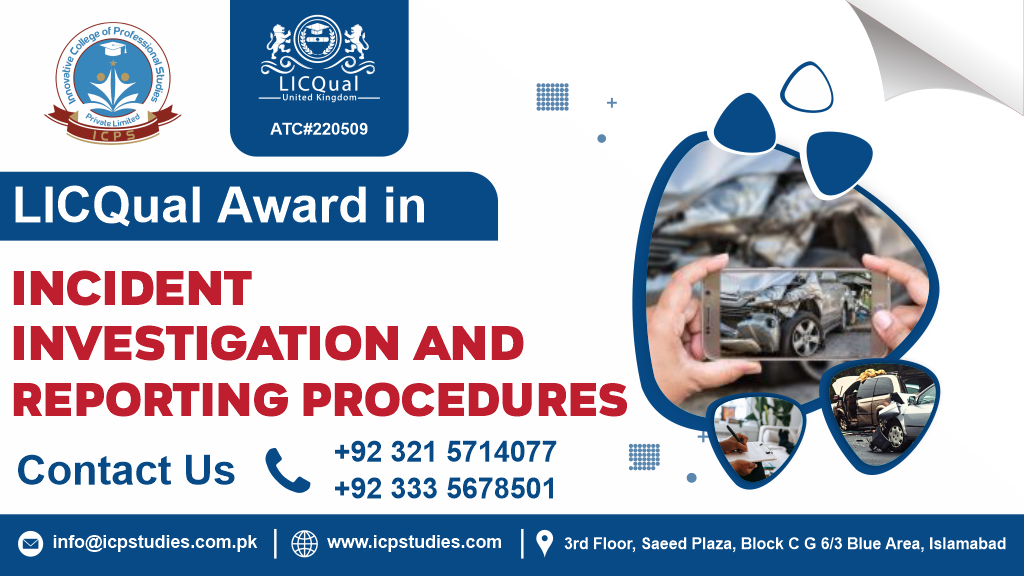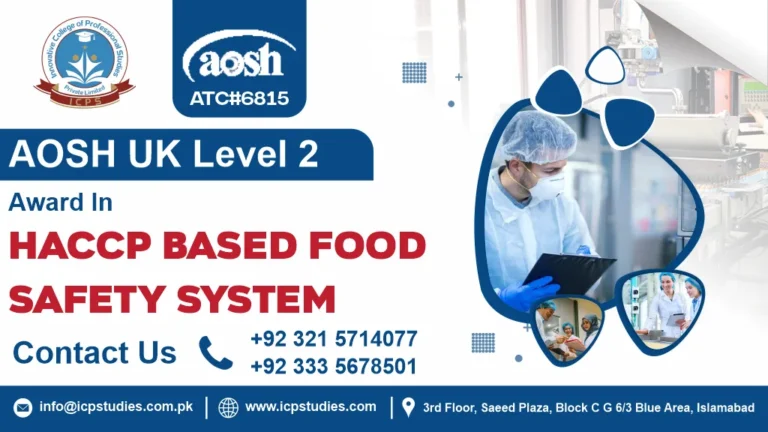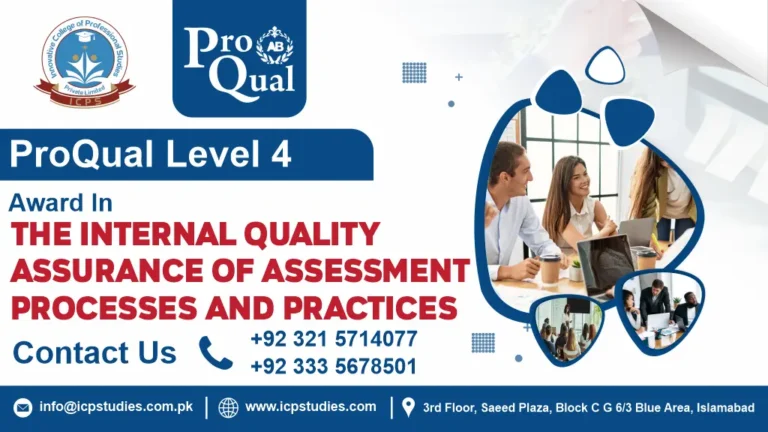In today’s fast-paced and dynamic work environments, incidents can occur unexpectedly, ranging from minor accidents to major emergencies. Proper incident investigation and reporting procedures are essential for maintaining workplace safety, preventing future incidents, and complying with regulatory requirements. One effective way to gain expertise in this critical area is by pursuing an Award in Incident Investigation and Reporting Procedures.
The Award in Incident Investigation and Reporting Procedures is a specialized qualification designed to equip individuals with the knowledge and skills necessary to effectively investigate and report workplace incidents.
The Award in Incident Investigation and Reporting Procedures is a valuable qualification for anyone seeking to enhance their understanding of incident management and safety procedures. By mastering the techniques, principles, and best practices covered in this award, individuals can play a crucial role in preventing incidents, protecting lives, and promoting a culture of safety in the workplace. Investing in incident investigation training not only benefits individuals but also contributes to the overall success and resilience of organizations in today’s complex and ever-changing world.
All About Award in Incident Investigation and Reporting Procedures
Course Overview
The “Award in Incident Investigation and Reporting Procedures” is a specialized qualification aimed at individuals who are involved in workplace safety, risk management, and incident response. This award provides comprehensive training on how to effectively investigate and report workplace incidents, ranging from minor accidents to major emergencies. Participants learn various techniques, methodologies, and best practices for conducting thorough incident investigations, identifying root causes, and implementing preventive measures to mitigate future risks.
The “Award in Incident Investigation and Reporting Procedures” is typically offered by accredited training providers and institutions and may vary in duration and content. Upon completion of the award, participants receive a recognized qualification that demonstrates their proficiency in incident investigation and reporting procedures. This qualification can enhance their professional credentials, contribute to a safer work environment, and help organizations comply with legal and regulatory requirements related to workplace safety.
Study Units
Learning Outcomes
Certainly! Here are the learning outcomes for each of the study units:
- Introduction to Fire Incident Investigation:
- Understand the fundamentals of fire incident investigation.
- Identify common causes and factors contributing to fire incidents.
- Recognize the importance of proper investigation procedures in fire safety management.
- Introduction to Incident Investigation and Reporting:
- Define the concept of incident investigation and its significance in workplace safety.
- Explain the objectives and benefits of incident reporting.
- Familiarize with basic incident investigation terminology and processes.
- Incident Investigation Techniques and Tools:
- Learn various techniques and tools used in incident investigation, such as root cause analysis, fault tree analysis, and fishbone diagrams.
- Understand how to apply these techniques to uncover underlying causes and contributing factors of incidents.
- Gain proficiency in using investigation tools effectively to facilitate thorough investigations.
- Legal and Ethical Considerations in Incident Reporting:
- Understand the legal and regulatory requirements governing incident reporting.
- Identify ethical considerations and obligations related to incident reporting.
- Learn how to ensure compliance with legal standards and maintain confidentiality and integrity throughout the reporting process.
- Data Collection and Preservation:
- Learn methods for collecting and preserving evidence and data related to incidents.
- Understand the importance of accurate and thorough data collection in the investigation process.
- Gain skills in documenting and organizing evidence to support investigative findings.
- Root Cause Analysis in Incident Investigation:
- Understand the concept of root cause analysis and its role in incident investigation.
- Learn how to identify and analyze root causes using various methodologies and tools.
- Develop the ability to differentiate between immediate causes and underlying systemic issues contributing to incidents.
- Effective Interviewing and Communication Skills:
- Develop effective communication skills for conducting interviews with witnesses, stakeholders, and involved parties.
- Learn techniques for active listening, questioning, and building rapport during interviews.
- Understand the importance of clear and accurate communication in gathering information and collaborating with others during the investigation process.
- Developing Incident Investigation Reports:
- Learn how to structure and format incident investigation reports effectively.
- Develop the ability to clearly and concisely summarize investigation findings, analysis, and recommendations.
- Gain proficiency in presenting investigative reports in a professional and informative manner.
- Incident Trend Analysis and Preventive Measures:
- Understand the importance of incident trend analysis in identifying patterns and trends in incident data.
- Learn how to analyze incident trends to identify recurring issues and areas for improvement.
- Develop skills in developing preventive measures and recommendations based on trend analysis findings to mitigate future risks.
- Incident Management and Response Procedures:
- Understand the principles of incident management and response.
- Learn how to implement effective incident response procedures to minimize harm and mitigate the impact of incidents.
- Familiarize with protocols for coordinating response efforts, communicating with stakeholders, and managing resources during incidents.
Admission Criteria
Entry requirements for the “Award in Incident Investigation and Reporting Procedures” may vary depending on the institution or training provider offering the course. However, typical entry requirements may include:
- Educational Qualifications: A minimum educational level may be required, such as a high school diploma or equivalent qualification. Some institutions may have specific academic prerequisites for enrollment.
- Work Experience: While not always mandatory, having relevant work experience in fields such as health and safety, risk management, or emergency response may be beneficial. Candidates with practical experience in incident investigation or reporting may have a better understanding of course materials.
- Language Proficiency: Proficiency in the language of instruction, usually English, may be required to ensure that candidates can effectively engage with course content, participate in discussions, and complete assessments.
- Basic Computer Skills: Aspects of the course may involve the use of computer software for data analysis, report writing, or online learning platforms. Therefore, candidates may need basic computer skills to navigate these tools effectively.
- Pre-Course Assessment: Some institutions may require candidates to undergo a pre-course assessment or interview to evaluate their suitability for the program. This assessment may assess candidates’ understanding of relevant concepts, their motivation for enrolling in the course, and their ability to meet the demands of the curriculum.
- Professional Certifications: While not always mandatory, possessing relevant professional certifications in areas such as health and safety, risk management, or emergency response may demonstrate a candidate’s commitment to the field and their preparedness for advanced training in incident investigation and reporting.
- Additional Requirements: Depending on the nature of the course and the institution’s policies, there may be additional requirements such as background checks, health and safety clearances, or specific prerequisite courses that candidates must fulfill before enrolling.
It’s essential for prospective students to review the specific entry requirements outlined by the institution offering the course and ensure that they meet all criteria before applying for admission. Additionally, candidates may benefit from contacting the institution directly for clarification or guidance on any aspect of the entry requirements.
Ideal Candidate
The “Award in Incident Investigation and Reporting Procedures” is designed for individuals who are involved in or responsible for workplace safety, risk management, and incident response. This course is suitable for a diverse range of professionals across various industries, including:
- Health and Safety Managers/Officers: Professionals responsible for overseeing and implementing health and safety policies and procedures within organizations can benefit from this course to enhance their incident investigation and reporting skills.
- Risk Managers: Those involved in assessing and managing risks within organizations can gain valuable insights into incident investigation techniques and tools to identify potential hazards, mitigate risks, and prevent incidents.
- Emergency Response Personnel: Individuals tasked with responding to workplace incidents, emergencies, or accidents can benefit from training in incident investigation and reporting to effectively manage and coordinate response efforts.
- Human Resources Personnel: HR professionals involved in workplace incident management, employee welfare, and compliance with legal and regulatory requirements can benefit from understanding incident investigation procedures and their role in supporting organizational safety initiatives.
- Supervisors and Team Leaders: Frontline supervisors and team leaders play a crucial role in ensuring the safety of their teams and implementing incident reporting procedures. This course can equip them with the necessary skills to effectively investigate incidents and promote a culture of safety within their teams.
- Compliance Officers: Professionals responsible for ensuring organizational compliance with legal and regulatory requirements related to incident reporting and workplace safety can benefit from gaining expertise in incident investigation techniques and legal considerations.
- Quality Assurance and Control Personnel: Individuals involved in quality assurance and control processes can use incident investigation skills to identify quality issues, analyze root causes, and implement corrective actions to prevent recurrence.
- Anyone Interested in Enhancing Workplace Safety: This course is also suitable for individuals interested in enhancing workplace safety and contributing to a safer work environment, regardless of their specific job roles or industry backgrounds.
Overall, the “Award in Incident Investigation and Reporting Procedures” is designed to cater to individuals who have a vested interest in promoting workplace safety, preventing incidents, and ensuring compliance with legal and regulatory requirements. It provides valuable knowledge and skills that can benefit professionals across various sectors and organizational levels.
FAQs about Award in Incident Investigation and Reporting Procedures







